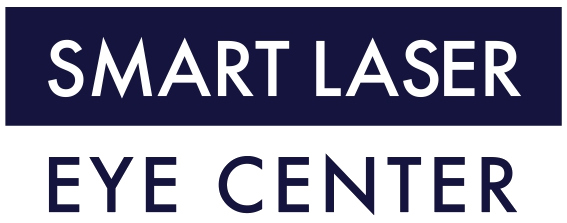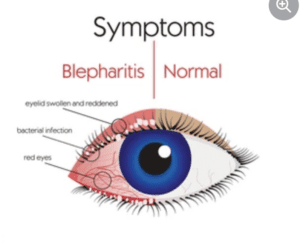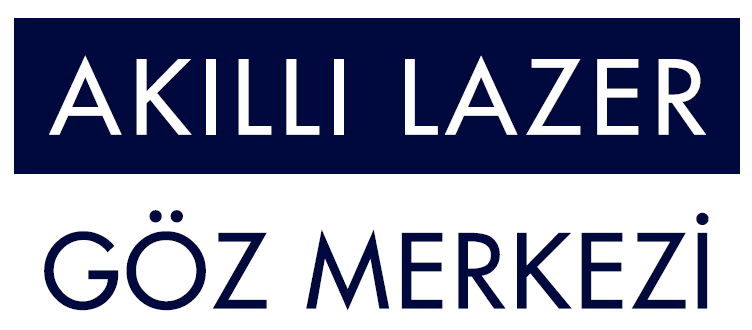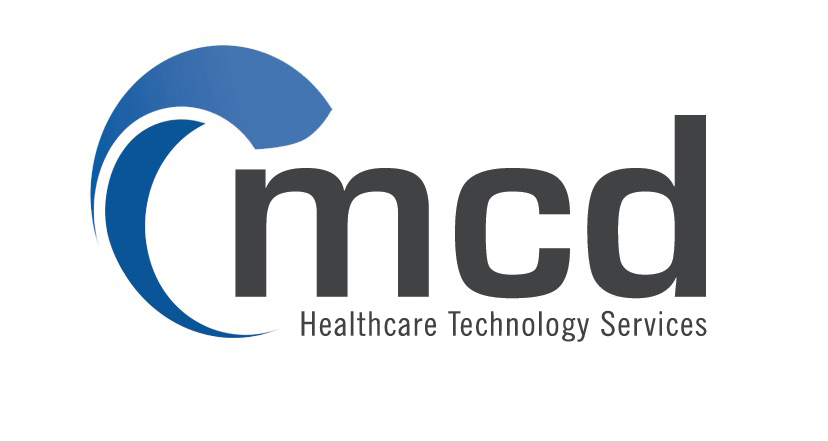Home »
Blepharitis Treatment
BLEPHARITIS – Inflammation of the Eyelids
Blepharitis is inflammation of the eyelids. Usually affects both eyes along the edges of the eyelids. Generally, Blepharitis occurs when the small sebaceous glands at the base of the eyelashes become blocked, causing irritation and redness. Several diseases and conditions can cause blepharitis.
Symptoms of the Disease
The signs and symptoms of blepharitis are typically worse in the morning. They include:
- Watery eyes.
- Red eyes.
- A gritty, burning or stinging sensation in the eyes.
- Eyelids that appear greasy.
- Itchy eyelids.
- Red, swollen eyelids.
- Flaking of the skin around the eyes.
- Crusted eyelashes.
- Eyelid sticking.
- More frequent blinking.
- Sensitivity to light.
- Blurred vision that usually improves with blinking.
When you should see a doctor
Especially, if you have signs and symptoms of blepharitis that do not improve despite good hygiene, regular cleaning and care of the affected area and make an appointment with your doctor.
Generally, blepharitis is a chronic condition that is often difficult to treat. Also, blepharitis can be uncomfortable and unsightly. However, it usually does not cause permanent damage to your eyesight and is not contagious.
Causes of the disease
Particularly, the exact cause of blepharitis is not clear. Also, it may be associated with one or more of the following:
- Seborrheic dermatitis – dandruff on the scalp and eyebrows.
- Eye Infection.
- Clogged or malfunctioning oil glands in your eyelids.
- Rosacea – a skin condition characterized by facial redness.
- Allergies, including allergic reactions to eye medications.
- Contact lens solutions or eye makeup.
- Eyelash mites or lice.
- Dry eyes.
Complications
Especially, If you have blepharitis, you may experience the following problems:
Eyelash problems:
Generally, Blepharitis can cause your eyelashes to fall out, grow abnormally (misdirected eyelashes), or lose color.
Eyelid skin problems:
Usually, Scarring may occur on your eyelids due to prolonged blepharitis. Or the eyelid margins may turn inward or outward.
Excessive tearing or dry eyes:
Especially, other debris from your eyelids, such as abnormal oily secretions and the flaking associated with dandruff. Also, it can build up in your tear film a solution of water, oil, and mucus that creates tears.
Therefore, the abnormal tear film prevents your eyelids from staying moist. Also, this can irritate your eyes and cause symptoms of dry eye or excessive tearing.
Stye
Especially, stye is an infection that develops at the bottom of the eyelashes. Also, the result is a painful lump at the edge of your eyelid. Usually, styes are most visible on the surface of the eyelid.
Chalazion, meibomian cyst.
Particularly, A chalazion occurs when there is a blockage in one of the small sebaceous glands at the edge of the eyelid, just behind the eyelashes. Also, this blockage causes inflammation of the gland, which causes swelling and redness of the eyelid. This may clear up or turn into a hard, non-tender lump.
Chronic pink eye.
Also, blepharitis can lead to recurrent episodes of pink eye (conjunctivitis).
Injury to the cornea.
Especially, constant irritation from inflamed eyelids or misdirected eyelashes can cause a sore on your cornea. Also, not having enough tears can increase your risk of corneal infection.
Diagnosis of the Disease
Tests and procedures used to diagnose blepharitis include:
Examining your eyes.
Your doctor may use a special magnifying glass to examine your eyelids and eyes.
Cleaning the skin for testing.
In some cases, your doctor may use a swab to take a sample of the oil or crust that forms on your eyelid. Therefore, this sample can be analyze for evidence of bacteria, fungi or allergies.
Treatment of the Disease
Self-care measures such as rinsing your eyes and using warm compresses may be all that is need for most cases of blepharitis. Moreover, if self-care measures aren’t enough, your doctor may recommend prescription treatments that include:
Infection-fighting drugs. Antibiotics apply to the eyelid have been shown to provide symptom relief and relieve bacterial infection of the eyelids. Additionally, these are available in a variety of forms, including eye drops, creams, and ointments.
Also, if you don’t respond to topical antibiotics, your doctor may recommend oral antibiotics.
Medicines to control inflammation. Generally, steroid eye drops or ointments are use for this, usually only for people who have not responded to other treatments. Your doctor may prescribe both antibiotics and anti-inflammatory drugs.
Medicines that affect the immune system. Topical cyclosporine (Restasis) has been shown to relieve some of the signs and symptoms of blepharitis.
Treatments for underlying conditions. Blepharitis caused by seborrheic dermatitis, rosacea, or other diseases can be controlled by treating the underlying disease.
Other treatment options, such as using intense pulsed light, can unclog glands. More work is needed.
Blepharitis rarely goes away completely. Even with successful treatment, the condition is often chronic and requires daily care with eyelid scrubs. If you don’t respond to treatment, or if your eyelashes also fall out or only one eye is affected, localized eyelid cancer can cause the condition.
Your Lifestyle and home treatment
For most cases of blepharitis, self-care measures may be the only treatment needed.
Clean your eyes every day
If you have blepharitis, apply this self-care solution two to four times a day during burns and once or twice a day after the condition is under control:
Apply a warm compress to your closed eye for a few minutes to loosen crusty deposits on your eyelids.
Using a clean cloth or clean finger, massage the eyelids firmly but gently.
Immediately use a clean cloth or cotton-tipped applicator moistened with warm water and a few drops of diluted baby shampoo or over-the-counter eyelid cleanser to remove oily residue or scales from the base of your lashes. Use a different clean cloth for each eye.
In some cases, you may need to be more careful about cleaning the edges of your eyelids to your lashes. To do this, gently pull your eyelid away from your eye and gently rub the bottom of your eyelashes with a cloth. This helps prevent damage to your cornea with the cloth.
After cleaning your eyelids in this way, ask your doctor if you can use a topical antibiotic ointment.
Rinse your eyelids with warm water and dry them gently with a clean, dry towel.
It may help to stop using eye makeup when your eyelids become inflamed. Makeup can make it difficult to keep your eyelids clean and free of residue. Also, it’s possible for makeup to reintroduce bacteria into the area or cause an allergic reaction.
Try over-the-counter artificial tears. These eye drops can help relieve dry eyes.
Control dandruff and mites
If you have dandruff contributing to your blepharitis, ask your doctor to recommend a dandruff shampoo. Using a dandruff shampoo can ease your blepharitis signs and symptoms.
Using a tea tree oil shampoo on your eyelids daily can help you deal with mites. Or try gently rubbing your eyelids once a week with 50% over-the-counter tea tree oil. Contact your doctor if you do not see improvement within six weeks. And stop using tea tree oil if it irritates your skin or eyes.
Useful Links
Strabismus Crossed Eye Squint Treatments, Diabetic Retinopathy Disease. Macular Degeneration Treatments. Glaucoma Disease and Treatments. Retinitis Pigmentosa Disease and Treatments. Dry Eye Syndrome Treatments. Periodic Eye Examinations. Blepharitis Definition (AAO).
Your Expert Eye Surgeons

Education Information:
After graduating from primary school in Trabzon, Dr. Ofluoglu. He completed secondary and high school in Istanbul. He graduated from Istanbul University Cerrahpasa Faculty of Medicine in 1987. He successfully completed his ophthalmology residency at the Medical University of Vienna, Austria. He received his specialization equivalency in Turkey from Istanbul University Capa Faculty of Medicine . He worked as an Ophthalmologist at Taksim German Hospital between 1997-2014 as an ophthalmologist.Work experience:
German HospitalGalata Medical AcademyCertificates, Memberships, Scientific Publications:
- Articles Published in International Refereed Journals (Sci&Ssci&Arts And Humanities)
- Traenenwege from Die Endeskopie Der Ablrite. Akuchar, P. Novak,
- Ofluoglu FJ: Steinkogler. Spectrum Der Augenheikunde (1985)
- Volumersatz Der Orbita Myth Bioplastic. FJ Steinkogler, A. Kuchar,
- Novak, A.Ofluoglu Spektrum Der Augenheikunde
- Turkish Ophthalmology Association
- European Society Of Cataract And Refractive Surgeons
- American Society Of Cataract And Refractive Surgery
Specialized Treatments and Surgeries:
- Retractive Laser Eye Surgery: iLASIK (Femto Lasik), LASIK, LASEK, TransEpithelial PRK (NO TOUCH) and SMILE
- Cataract Surgery (Smart Lens Surgery)
- Keratoconus Treatments – Cross-Linking Surgeries
- Pterygium – Eyelid (Bird Wing) Surgery-
- Dry Eye Disease and Treatments
- Strabismus Treatments
- Glaucoma- Glaucoma Eye Pressure Treatments
- Diabetic Retinopathy – Treatments for Diabetes-Related Eye Diseases
- Macular Degeneration Disease Treatments
Foreign language:
- English
- German
MEDICAL UNIVERSITY of VIENNA
35 Years of EXPERIENCE
>35.000 Surgery
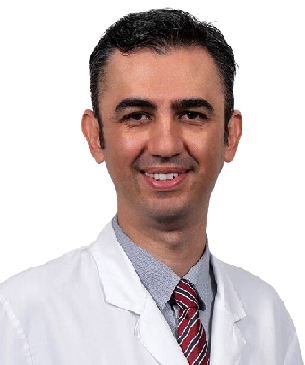
Education Information:
He graduated from Ankara University Faculty of Medicine in 2000 with the 4th rank. He completed his ophthalmology residency at Hacettepe University Faculty of Medicine . Between 2009 and 2011, he completed his master's degree in cornea, ocular surface and refractive surgery at Harvard Medical School in Boston, US. He qualified the title of associate professor in 2012 and Professor title in 2017 . He has performed over 15,000 surgeries in over twenty years.Academic achievements:
He has received numerous national and international awards (ARVO-Asia Travel Fellowship Grant Award, Gazi Eye Foundation 'Best Scientific Paper Award', ARVO Collaborative Research Fellowship Award, ICO Helmerich Fellowship Award, ICO WOC Fellowship Award, Royal College of) Ophthalmologists Best Reviewer Award, Turkish Academy of Sciences Outstanding Young Scientist Award). Koç University established its own research group with the support of KUTTAM, TÜBİTAK, TÜBA and ARVO.Awards, Memberships, Certificates:
- Ankara University Medical School, 4th rank in graduation (2000)
- International Council of Ophthalmology (ICO) “Basic Science Assessment in Ophthalmology including Optics and Refraction” Certificate (2004)
- International Council of Ophthalmology (ICO) “Clinical Science Assessment in Ophthalmology” Certificate (2005)
- Association for Research and Vision in Ophthalmology (ARVO)-Asia 'Travel Fellowship Grant Award' (2007)
- Gazi Eye Association Scientific Award (2008)
- TÜBİTAK ULAKBİM UBYT Awards
- Association for Research and Vision in Ophthalmology (ARVO) 'Collaborative Research Fellowship Award' (2009)
- TOD Glaucoma Symposium Best Oral Presentation Award (2009)
- TÜBİTAK 2219-Postdoctoral Research Fellow Award (2009)
- International Council of Ophthalmology (ICO) 'Helmerich International Fellowship Award' (2010)
- The Turkish Academy of Sciences (TÜBA) 'Outstanding Young Scientist Award' (2012)
- Association for Research and Vision in Ophthalmology (ARVO) 'Developing Country Eye Researcher Fellowship Award' (2015)
- Turkish Ophthalmology Society Scientific Award (2015)
- International Council of Ophthalmology (ICO) WOC2106 Travel Fellowship Grant Award (2016)
- Turkish Medical Association, Most Successful medical doctor of the year (2016)
- Turkish Ophthalmology Association
- Association for Research in Vision and Ophthalmology (ARVO)
- European Association for Vision and Eye Research (EVER)
- American Academy of Ophthalmology (AAO)
- American Society of Cataract and Refractive Surgery (ASCRS)
- European Society of Cataract and Refractive Surgeons (ESCRS)
Specialized Treatments and Surgeries:
- Corneal Transplant
- Complicated Cataract surgery
- Retinitis Pigmentosa Wharton jelly stem cell treatment
- Refractive Laser Eye Surgeries
- Keratoconus Cross-Linking
- ring therapy
- Hard-hybrid innovative contact lenses
- Dry eye (Autologous serum, IPL, LipiFlow treatment)
- Glaucoma (eye pressure)
Foreign language:
- English
- Turkish
Harvard MEDICAL School
22 Years of EXPERIENCE
>15.000 Surgery
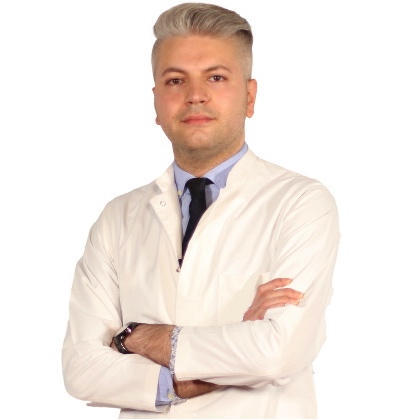
Education Information
He completed primary, secondary and high school in Baku. He graduated from Azerbaijan Medical Faculty in 2010. He completed his ophthalmology residency in Baku National Ophthalmology Center Azerbaijan . He was entitled to receive the Presidential Scholarship of the Republic of Azerbaijan in 2014, and completed the equivalence of specialization in Turkey in the Department of Ophthalmology, Faculty of Medicine, Selcuk University in 2014-2018, and worked as a research assistant and ophthalmologist at the university until 2018. He worked as an Ophthalmologist at Private LIV Hospital Nation between 2019-2022.Work experience:
- Selcuk University Faculty of Medicine
- Private LIV Hospital Ulus
Certificates, Memberships, Scientific Research:
- Peroperative developing choroidal detachment and its management.
- Surgical Approach in Posterior Polar Cataract.
- Iatrogenic retinal artery occlusion caused by cosmetic facial autologous fat filler injections.
- Effect of Smoking on Ocular Surface and Corneal Nerves.
- Lupus choroidopathy in a patient with discoid lupus erythematosus.
- Endophthalmitis and its treatment with early parsplanavitrectomy.
- Turkish Ophthalmology Association.
Specialized Treatments and Surgeries:
- Retractive Laser Eye Surgery: iLASIK (Femto Lasik), LASIK, LASEK, Trans Epithelial PRK (NO TOUCH) and SMILE
- Cataract Surgery (Smart Lens Surgery)
- Keratoconus Treatments – Cross-Linking Surgeries
- Pterygium Surgery
- Dry Eye Disease and Treatments
- Strabismus Surgery
- Glaucoma- Glaucoma Eye Pressure Treatments
- neuro ophthalmology
- Retinal Diseases Treatments
- Oculoplasty
- Uveitis Diseases
- Ectropion and entropion surgery – Eyelid deformity treatments
- Enucleation and Evisceration Prosthetic Eye Surgery
Foreign language:
- English
- German
- Russian
- Azerbaijani
- Turkish
MEDICAL UNIVERSITY of Selcuk
12 Years of EXPERIENCE
>8.000 Surgery
Definitely avoid low-cost Eye Treatment
You may think that a cheap eye treatments is right for you. This might be fine if you're buying a cheap TV, but it's not worth the gamble with your eyesight. But as you know, having cheap eye surgery means sacrificing technology, physician quality, medical care and sterile conditions, and most importantly, taking risks. The issues that fall on a patient who wants to have cataract surgery and should pay the most attention; The hospital with the latest technology in cataract surgery and imaging devices, a sterile environment, and an experienced doctor and clinical team should be selected. We would like to remind all our patients that they only have two eyes and that the most important and most sensitive sense organ is their eyes.
None of these things are more important than your eye health, and we do not compromise on quality and cutting-edge technology. We offer you our prices in a very understandable, fair and affordable way.
There are no hidden costs in our pricing. We make eye treatments affordable for you.
